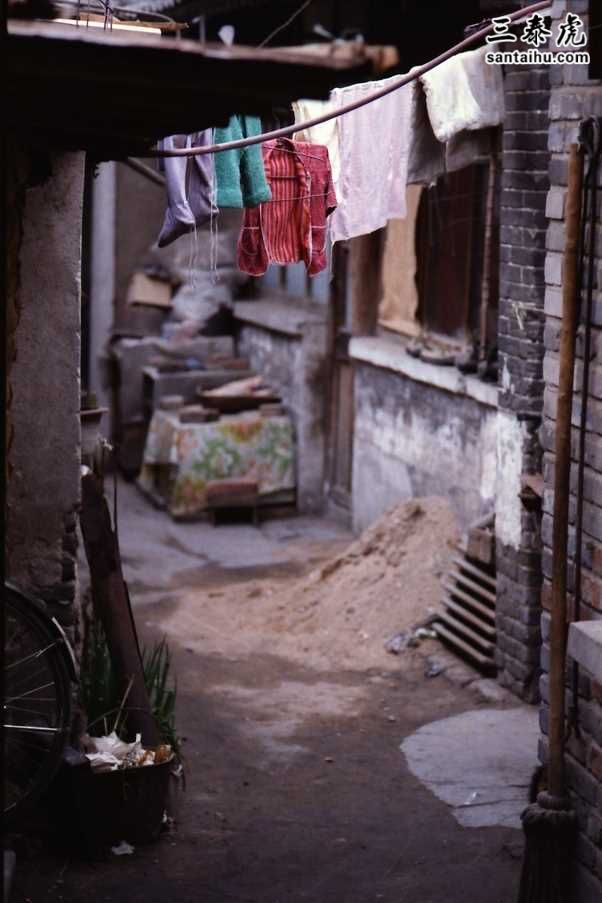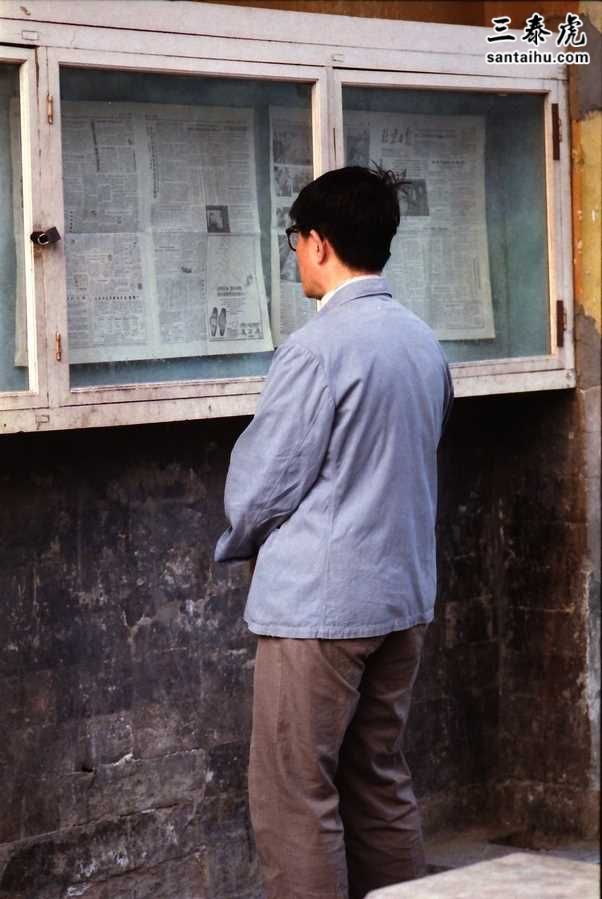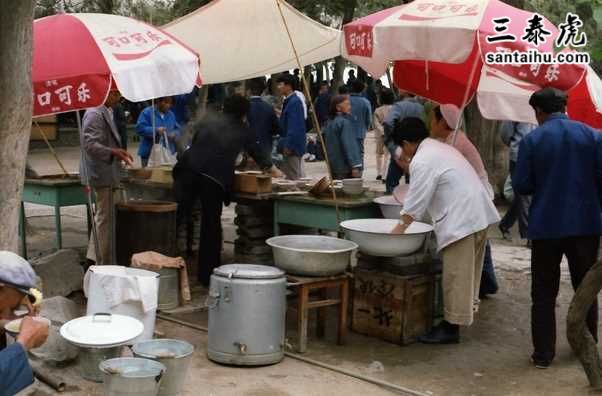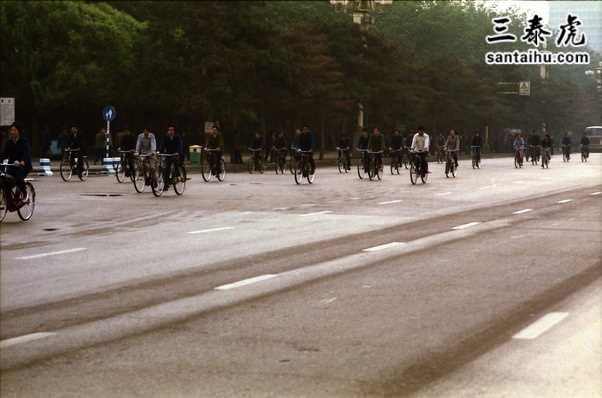Is it true that Chinese people now have a high standard of living?
中国人现在真的过上了很高的生活水平吗?
以下是Quora读者的评论:
Adri Wing
YES.
I am not a Chinese citizen but have visited the country several to observe thr rapid development there.
1999 - Beiing for a conference
2001 - Brought family for a tour to Beiing & Great Wall
2005 - Short B&B tour with two other couples to Shenzhen, Hong Kong & Macau
2006 - Business recce to Dalian
2007 - Meeting in Shanghai & Chengdu
2016 - Group tour to ZhangJiaJie to visit “Avatar” mountains
是的。
我不是中国公民,但我曾多次访问中国,目睹了中国的快速发展。
1999年 - 去北京参加一个会议
2001年 - 带家人去北京游玩并参观了长城
2005年 - 和另外两对夫妇一起进行了一次短暂的民宿之旅,去了深圳、香港和澳门
2006年 - 去大连进行商务考察
2007年 - 在上海和成都参加会议
2016年 - 参加旅行团去张家界参观了“阿凡达”山脉
James Towers Mollis
Of course they are materially much better off, they have a lot of nice things, boutique quality, then some of it looks real artificial, even dystopian. A lot of it is of course just real unremarkable. Cheap sold for quick money, will probably fail too soon. It’s hugely a mixed bag. That was my observation of China having been there, that’s what others I hear say.
If you watch old Chinese movies they were doing just fine most of the time when the weren’t messing them up. You see little evidence of the type of third world desperate poverty you see even in countries like Brazil, India or parts of South East Asia (Cambodia, Philippines, etc.). Yes those nations really have the most desperate poverty on a mass scale, even Brazil does, despite their happy go luck image they give to the outside world. Mass poverty on an epic scale. They are also all part of the Global South.
当然,他们在物质上富足得多,拥有很多好东西,品质上乘,但其中一些看起来非常虚假,甚至有点反乌托邦的意味。当然,很多东西其实也很普通。那些为了快速赚钱而出售的廉价商品,很可能很快就会坏掉。这真的是好坏参半。这是我去过中国后的观察所得,我听到的其他人也这么说。
如果你看一些中国的老电影,会发现大多数时候,人们的生活过得还不错。你几乎看不到那种在巴西、印度或东南亚部分国家(如柬埔寨、菲律宾等)都能见到的第三世界国家的极度贫困状况。是的,那些国家确实存在大规模的极度贫困,即使是巴西也是如此,尽管他们向外界展示出一种逍遥自在的形象。而且它们也都属于全球南方国家。
It must’ve been a thing in a nation as gigantic as China, but it wasn’t the norm for them like it is for other nations. In fact a lot of them lived traditional village lives, which were hardly some kind of dystopia. They seemed pretty happy there. Let’s not forget Chinese are mostly Northerners, they are not the Global South. They had to deal with harsh winters, that stimulates nations to develop for survival. Having to survive the winter each year is a huge thing compared to just having nice weather year round.
When they say things like they lifted 800 million people out of poverty that probably means 700 million of those weren’t like dying in poverty, they left their traditional happy village life and became more modern wage slaves. Take it with a grain of salt. Which was actually better? I think a lot of Chinese are wondering about that one too right now. Some Chinese young people are rejecting that kind of lifestyle of having no life other than work. Many left their children behind in villages, many don’t have spectacular accommodation or a bright future.
在中国这样一个幅员辽阔的国家,贫困肯定曾是个问题,但它不像在其他国家那样成为普遍现象。事实上,很多人过着传统的乡村生活,那绝不是什么反乌托邦式的生活。他们的生活看起来相当幸福。别忘了,中国人大多是全球北方人,他们不属于全球南方国家。他们不得不应对严寒的冬天,而这促使国家为了生存而发展。与常年气候宜人相比,每年都要熬过冬天是一件大事。
他们说让8亿人摆脱了贫困,可能意味着其中7亿人并不是那种在贫困中挣扎到濒死的状态,而是他们离开了原本幸福的传统乡村生活,变成了更现代的“工资奴隶”。对此要持保留态度。到底哪种生活更好呢?我想很多中国人现在也在思考这个问题。一些中国年轻人正在拒绝那种除了工作没有生活的生活方式。许多人把孩子留在了农村,很多人没有豪华的住所,也没有光明的未来。
Their development wasn’t actually so damn spectacular if you compare it to something like Europe. Europe followed a similar course of development, especially the Eastern part after they left co sm. The picture in Europe is more mixed though, since some nations wallow in corruption while other look real nice now, comparable to (the better parts) of China. They say things like the food is much better now.
So Chinese development is only spectacular if you compare it to third world nations like Brazil or India and they didn’t actually look like those third world nations even going back 50 or more years. More like they were behind on tech but not living in squalor either. China was a more agricultural nation than Europe at that time, so more village life, less city life.
如果你将中国的发展与欧洲的情况作比较,实际上中国的发展并非惊人。欧洲也经历过类似的发展历程,尤其是东欧国家在脱离*主义体制之后。不过,欧洲的情况更为复杂多样,有些国家深陷腐败泥潭,而另一些国家现在看起来确实很不错,可与中国发展较好的地区相媲美。他们会说现在的食物比以前好多了
所以,只有当你把中国的发展与巴西、印度这样的第三世界国家作比较时,中国的发展才显得格外引人注目,但即便回溯到50年甚至更久以前,中国实际上也并不像那些第三世界国家。更确切地说,当时中国在科技方面较为落后,但也并非生活在贫困肮脏的环境中。那时,与欧洲相比,中国是一个农业更为发达的国家,大多数人过着乡村生活,少数人过着城市生活。
So in a sense this Chinese miracle is like telling Europe “look, we did just as good as you did, you didn’t think that would happen would you? Some things we even did better”. So what? Good job, China.
And thank you for selling us stuff we can afford to buy.
In the meantime Europe is this dumb slug that manages to produce zero growth year after year, like they have all the time in the world to be euro-morons trying to be American and sucking it at, because that’s what they do best. We might as well just admit it Europe became a piece of sh-t trying to copy America and they just can’t stop. The EU was so stupid Brits even left it. Not to be any better of course, but they spent 4 years arguing about that. Arguing about leaving something for 4 years, only to not be any better at all — yeah, Europeans. You can’t help notice something stinks.
从某种意义上说,中国的发展奇迹就像是在告诉欧洲:“看,我们做得和你们一样好,你们之前没想到会这样吧?有些方面我们甚至做得更好。” 那又怎样呢?中国,干得不错。
还要感谢你们卖给我们一些我们买得起的东西。
与此同时,欧洲就像一个愚蠢的懒汉,年复一年地毫无增长,好像他们有的是时间做模仿美国却又总是搞砸的“欧洲傻瓜”,这正是他们最擅长做的事。
我们不妨承认,欧洲在模仿美国的过程中做得一团糟,而且还停不下来。欧盟如此愚蠢,搞得英国人都选择离开了。当然,英国脱欧后也并没有变得更好,但他们却花了4年时间来争论这件事。为了脱离某个组织争论了4年,结果却并没有变得更好——没错,这就是欧洲人。你不禁会注意到有些事情不太对劲。
The Chinese were hardly some kind of inferior nation compared to others like the West or Japan or Korea, and they could very well be again in the future. Europeans are just victims of not realizing they’re led by a bunch of slow, hyper-arrogant morons who rip them off to profiteer and development does not work that way. If that wasn’t the case Europe would be the next superpower, and Chinese would not be taking the spotlight at all. But there’s nothing to say about that when those are facts and Chinese earned whatever they did with hard work, including working for the poor Western people to allow them to buy things they need.
与西方、日本或韩国等其他国家相比,中国人绝不是低人一等的民族,而且在未来他们很有可能再次展现强大实力。欧洲人只是没有意识到自己正被一群迟钝、极度傲慢的蠢货领导的受害者,这些人剥削他们以谋取私利,而发展绝不是以这种方式进行的。如果不是这样的话,欧洲本应成为下一个超级大国,而中国人根本不会成为焦点。但当这些都是事实的时候,也就没什么可说的了,中国人凭借辛勤努力赢得了他们所拥有的一切,其中包括为贫穷的西方民众工作,让他们能够买到所需的东西。
David W. Rudlin
Over the past 40 years, China has lifted 800 million people out of poverty. That is an achievement unmatched in the history of the world.
I’ve seen quite a lot of it. Here are some pictures from my first visit to Beiing in 1983:
The air was black with coal smoke. The street you see in the picture immediately above is now packed, mostly with made-in-China EV’s. The quality of the food has improved immeasurably, and while street stalls still exst, they’re sanitary and delicious. There are gleaming office blocks, 5-star hotels, a thriving art district, beautiful parks… hard to believe it’s the same place.
The western press takes great delight in reporting on the frustrations of the young, who have never known the China I saw. They are, understandably, frustrated that the seemingly unlimited possibility they knew as children didn’t turn out quite as well as they’d hoped.
But I often look at the old people in the park and wonder what they must think about the miracle they witnessed, and wonder if they realize there’s never been anything like it.
在过去的40年里,中国让8亿人摆脱了贫困。这是世界历史上无与伦比的成就。
我见证了许多这方面的变化。以下是我1983年首次访问北京时拍摄的一些照片:





当时,空气中满是煤炭燃烧产生的黑烟,乌黑一片。你在上面这张照片中看到的街道,如今车辆拥堵,而且大多是中国制造的电动汽车。食物的质量也有了极大的提升,虽然街边摊依然存在,但它们既卫生又美味。这里有闪耀着光芒的写字楼、五星级酒店、繁荣的艺术区、美丽的公园……很难相信这是同一个地方。
西方媒体非常乐于报道中国年轻人的沮丧情绪,而这些年轻人从未见识过我所见过的那个中国。可以理解的是,他们感到沮丧,是因为他们小时候所认为的那些看似无限的可能性,最终并没有如他们所期望的那样实现。
我常常看着公园里的老人们,心里琢磨着他们对于自己所见证的这个奇迹会作何感想,也想着他们是否意识到,这样的奇迹是史无前例的。
Mr.wonder
Of course, the Chinese people are living better and better.
The living standards of the Chinese people have kept improving.
If you go to China, you will find people in China are living much better than people in many countries and regions in the world.

当然,中国人民的生活过得越来越好了。
中国人民的生活水平一直在不断提高。
如果你去中国,你会发现中国人的生活比世界上许多国家和地区的人们要好得多。
Sosow Nima
Not high standard of living.but I am satisfied with the following aspects of China:
1. Safety: It is extremely safe.
2. The transportation, electricity, internet, and other conveniences are all very reliable.
3. Education and Medical: The quality of Education is high and the cost is low. As long as you have good grades and are willing to learn, being from a poor family is not a big problem.Medical care is similar to education in terms of quality and affordability.
4. Industrial Products: There is a wide variety, and they are inexpensive and high-quality.
5. Convenience: For example, when buying an air conditioner, installation is free, with only a small fee for transportation, usually around twenty to thirty dollars.
Some people call this exploitation of delivery or installation workers, but that’s not entirely accurate. In another scenario, when workers fall ill, medical care is also cheap and fast, even though doctors need to spend 24 years studying.
6. Food: It is cheap and fresh, especially vegetables and fruits. Beef was a bit expensive before, but this year it has dropped nearly 50%. Some say it’s because Argentina exports a lot of beef to China.
生活水平算不上极高,但我对中国的以下这些方面感到满意:
1. 安全:中国极其安全,治安非常好。
2. 交通、电力、网络以及其他各种便利设施都非常可靠。
3. 教育与医疗:教育质量很高,成本却很低。只要你成绩优异且愿意学习,出身贫困家庭也不是大问题。医疗也过得去
4. 工业产品:种类繁多,物美价廉。
5. 便利性:举个例子,购买空调时,安装是免费的,只需支付一小笔运输费,通常在二三十美元左右。
有人说这是在剥削快递员或安装工人,但这种说法并不完全准确。从另一个角度看,当工人患病时,医疗既便宜又高效,尽管医生需要经过长达24年的学习培养。
6. 食品:价格低廉且新鲜,尤其是蔬菜和水果。以前牛肉价格有点贵,但今年价格几乎下降了50%。有人说这是因为阿根廷向中国大量出口牛肉。
I think this is not entirely good, as I’ve heard that many cattle farmers are suffering significant losses this year. The government should subsidize them.
Most Disappointing Aspects:
Housing Prices and Rent: Especially in big cities. For example, a 120-square-meter house in the suburbs of Beiing might cost around 800,000~900,000 dollars, which is too high given the income levels of Chinese people.
Nearby, there used to be three bookstores and several restaurants, but recently they have all closed. This is because a new subway line is about to be completed, and the landlord, anticipating increased foot traffic, shamelessly raised the rent threefold.
After the negotiations broke down, the merchants had no choice but to close their businesses. The bookstore owner, whom I really liked, said with resignation that during the negotiations, the landlord used the "six-character mantra" —爱租租,不租滚!(If you want renting, rent; if not, Get out!)
I can accept the closure of restaurants, but it s really upsetting to see bookstores closeing.
These 3 bookstores have been a part of my life for 18 years; I used to spend several hours every week browsing these bookstores.
我觉得这也不全是好事,因为我听说今年很多养牛户遭受了重大损失。政府应该给予他们补贴。
最令人失望的方面:
房价和房租:尤其是在大城市。例如,北京郊区一套120平方米的房子可能要花费大约80万至90万美元,考虑到中国人的收入水平,这个价格实在太高了。
在我住的附近,曾经有三家书店和几家餐馆,但最近它们都关门了。这是因为一条新的地铁线路即将完工,房东预计客流量会增加,便厚颜无耻地将房租提高了两倍。
谈判破裂后,商家们别无选择,只能停业。我很喜欢的那家书店的老板无奈地说,在谈判时,房东甩出了那句“六字真言”——爱租租,不租滚!(如果你想租就租;不想租就滚!)
餐馆关门我还能接受,但看到书店关门真的很让人难过。
这三家书店已经陪伴我18年了,成为了我生活的一部分;过去我每周都会花几个小时在这些书店里浏览书籍。
The only consolation is that they also sell online, so I can still buy books from them online.
But I still prefer to go to physical bookstores, flip through books and deciding whether to buy them.
One of these bookstores has a warehouse not too far from my home—just a 1.5-hour bicycel ride away. I’m still willing to ride my bike there to browse and purchase books.
Exorbitant rent is just too damaging for physical stores
A friend of mine summed it up very well:
In cities like Beiing and Shanghai, if you solve the housing problem, everything else is a small issue. But if you can't solve the housing problem, every issue becomes a big problem.
Overall, aside from housing prices and rent, especially in big cities, I think things are still pretty good, considering how large the country is and how poor it used to be.
唯一让人感到欣慰的是,这些书店也在网上销售,所以我仍然可以从网上购买他们的书。
但我还是更喜欢去实体书店,随手翻阅书籍,然后再决定是否购买。
其中一家书店的仓库离我家不算太远,骑自行车一个半小时就能到。我还是愿意骑车去那里逛逛,选购书籍。
过高的房租对实体店来说实在是太具破坏力了。
我的一位朋友总结得非常好:
在北京、上海这样的城市,如果你解决了住房问题,其他一切都不是大问题。但如果你解决不了住房问题,那么任何问题都会变成大问题。
总的来说,除了房价和房租,尤其是在大城市里的房价和房租问题之外,考虑到中国这样一个幅员辽阔且曾经十分贫穷的国家如今的发展状况,我觉得其他方面还是相当不错的。
Sanjeev Kulkarni
At one time they had. But because of the recent economic downturn, they are losing it fast.
曾经他们中国确实取得过成就。但由于近期的经济衰退,他们正在失去优势。
John
Put it this way. The rural Chinese people can build their own home on land which they don’t need to buy, and they can build these themselves and own need to pay for the materials. That’s the housing for the relatively ‘poorer’ people.
Also for the rural people: The agricultural products they either grow themselves or can get these very cheap, especially the ugly looking but edible ones that the wholesalers won’t pay high prices for.
As for the basic household appliances, like the refrigerators, TV sets etc. They can get very good qualities without paying high prices. So are the mobile phones etc.
这么说吧。中国的农村居民有宅基地可以建房子,而且他们能够自己动手建房,只需要支付建筑材料的费用就行。这就是相对“较为贫困”的人群所拥有的住房情况。
同样对于农村居民而言:他们要么自己种植农产品,要么能以非常低廉的价格获得这些农产品,尤其是那些外观不太好看但能食用的农产品,批发商不会为这类农产品出高价。
至于基本的家用电器,比如冰箱、电视机等等,他们无需花费高昂的费用就能买到质量很好的产品。手机之类的也是如此。
Then, the telecom charges, the transportation costs such as train tickets and bus/coach fees etc also rather cheap, especially for the poorer people. Same with electricity and water for the poorer people.
Basic needs can be rather cheap in China, even within some cities there are places with very reasonable prices, just that you don’t get to see them.
Give you another example. You can find barbecue stalls that would sell roast tofu (bean curd) or roast tips of chicken wings. I may not eat these, but there are people who would enjoy these, not necessarily that they are poor. .. Do you call that “low standard of living” if these people enjoy themselves while not paying much for such ‘enjoyment’?
此外,电信费用、交通费用,比如火车票以及公共汽车/长途客车车票的费用等等也都相当便宜,对于较为贫困的人群来说更是如此。对于贫困人群而言,水电费用也是比较低廉的。
在中国,基本生活需求的开销可以相当低,甚至在一些城市里也有物价合理的地方,只是你没有留意到这些地方罢了。
再给你举个例子。你能找到一些烧烤摊,它们会售卖烤豆腐或者烤鸡翅尖。我可能不会吃这些东西,但确实有人会喜欢吃,而且这些人不一定就是穷人。如果这些人在花费不多就能享受这些“美食”的同时还自得其乐,你能把这称为“低生活水平”吗?
此文由 三泰虎 编辑,未经允许不得转载!:首页 > 大国 » 中国人现在真的过上了很高的生活水平了吗
 为什么中国远远领先于西方,在中国生活了近25年的哥伦比亚人这样说
为什么中国远远领先于西方,在中国生活了近25年的哥伦比亚人这样说 中国人向美国 TikTok“难民” 展示他们的尖端电动汽车
中国人向美国 TikTok“难民” 展示他们的尖端电动汽车 探访你们从未听说过的世界最大城市,中国这座城市生活着3600万人
探访你们从未听说过的世界最大城市,中国这座城市生活着3600万人 在中国生活了13年后,我回到了欧洲,看到这样的画面,我简直不敢相信
在中国生活了13年后,我回到了欧洲,看到这样的画面,我简直不敢相信 美国停止向中国出售芯片,中国人自己大量生产, 每年出口额超过1万亿元人民币
美国停止向中国出售芯片,中国人自己大量生产, 每年出口额超过1万亿元人民币 典型的中国食堂,中国人吃什么
典型的中国食堂,中国人吃什么 生活在中国和生活在美国,我很震惊
生活在中国和生活在美国,我很震惊 现代中国人能读懂唐代汉语吗,如果不能,能读懂多早之前的文字呢
现代中国人能读懂唐代汉语吗,如果不能,能读懂多早之前的文字呢